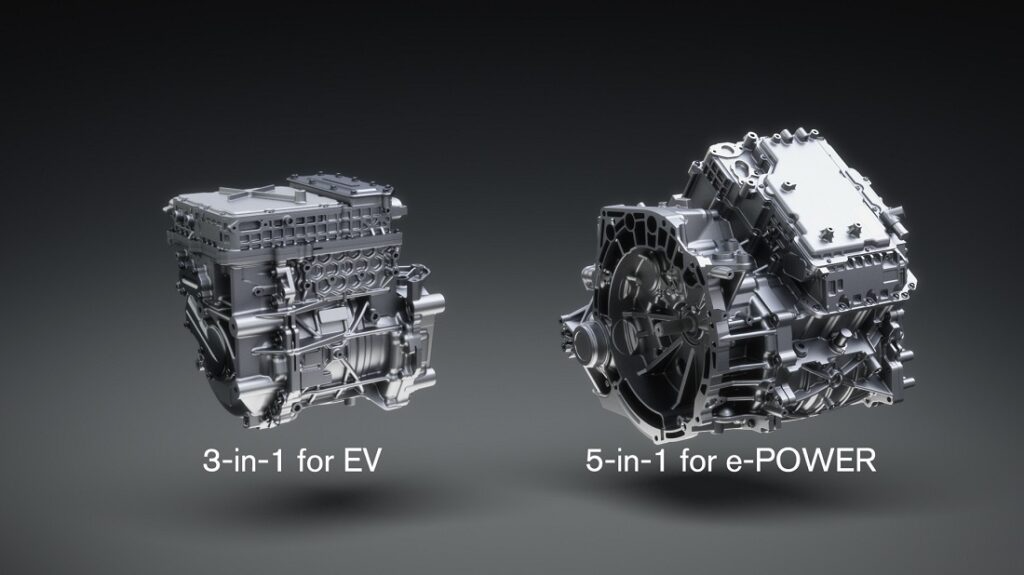- By
- 0 Comments
“X-in-1.” The brand will share and modularize key components of its EV and e-POWER powertrains, resulting in a 30% reduction in development and production costs by 2026 compared to 2019.
Nissan aims to further increase the competitiveness of EV and e-POWER vehicles with the X-in-1 approach. Nissan has developed a 3-in-1 powertrain system prototype that modularizes the motor, inverter, and reducer to be used in EVs. Additionally, a 5-in-1 prototype that modularizes the generator and booster is planned to be used in e-POWER vehicles.


“The X-in-1 approach, which includes 3-in-1, 5-in-1, and other possible versions, was developed to enable the production of EV and e-POWER basic components on the same line.”
In 2010, Nissan became the first automaker to mass-market an EV, the Nissan LEAF. Nissan also takes into account the expectations of EV customers around the world and closely monitors them in order to continuously improve electric transition technologies. The brand introduced the unique e-POWER electric powertrain system in 2016, which provides the same driving pleasure as an EV because it has a 100% electric motor.

The X-in-1 approach for developing electric powertrains provides the following advantages:
- Sharing and modularizing basic components increases production efficiency and reduces powertrain costs by about 30% compared to 2019. Nissan aims to achieve price parity between e-POWER and internal combustion engine vehicles by 2026.
- Reducing the size and weight of the unit improves driving performance and minimizes noise and vibration.
- The newly developed motor reduces magnet weight by 1% or less by using heavy rare earth elements.
- Shared use of basic components and control technology provides a unique driving experience for Nissan EVs.


Toshihiro Hirai, Senior Vice President responsible for Powertrain and EV Engineering, said:
“We have over a decade of experience in developing and producing electric systems. We are leveraging our expertise and knowledge to the fullest. Thanks to our innovations in electric powertrains, we will continue to create new value for our customers and offer 100% electric vehicles
(EVs and e-POWER) as widely as possible.”
As part of its long-term Nissan Ambition 2030 vision, the company aims to develop its product range with 27 new electric models, 19 of which will be fully electric, by the 2030 fiscal year. Nissan aims to deliver the value of its electric vehicles to a broad customer base by offering the most suitable models to each market at the right time.



